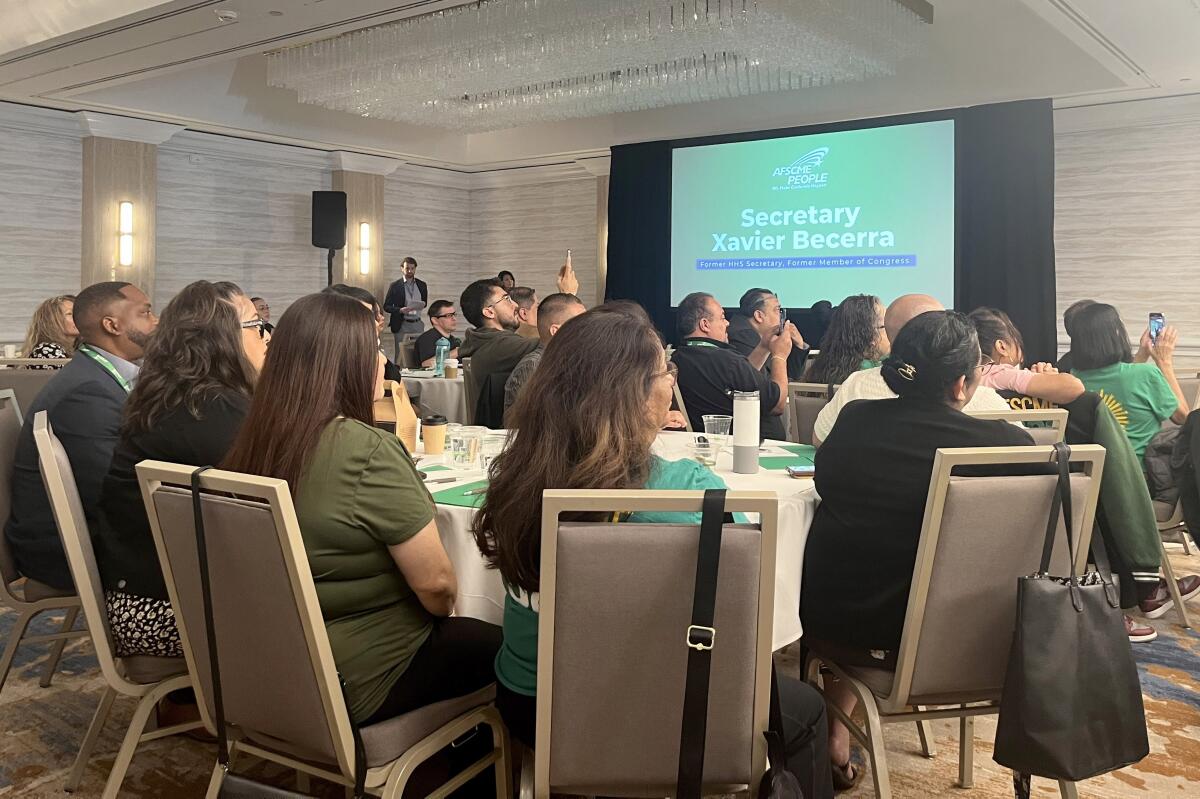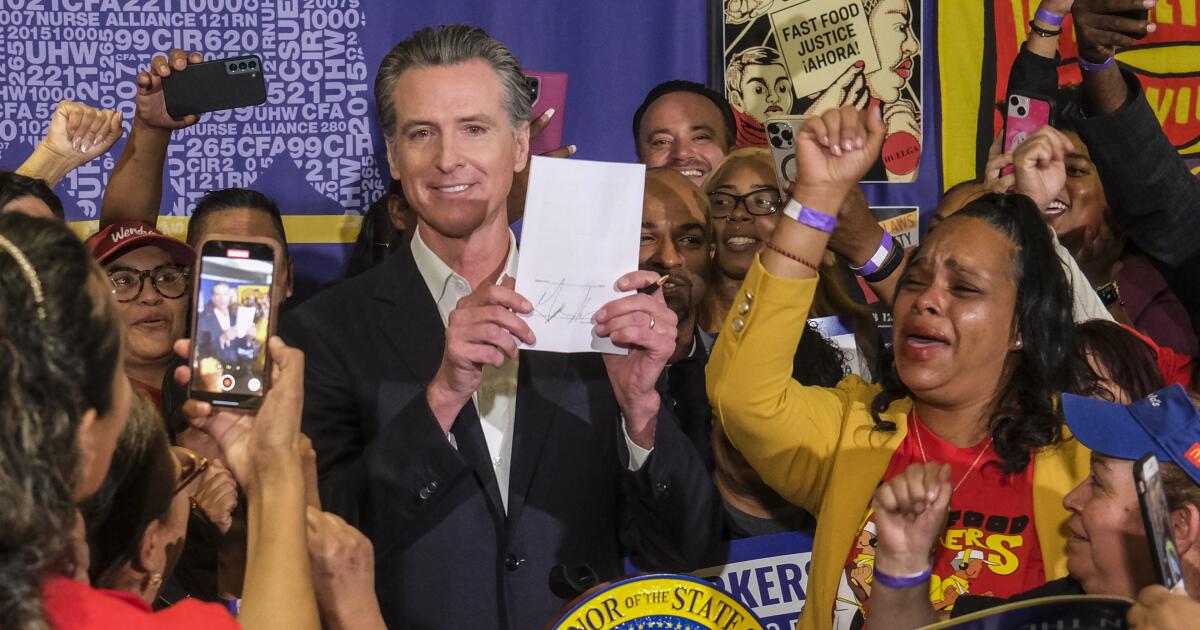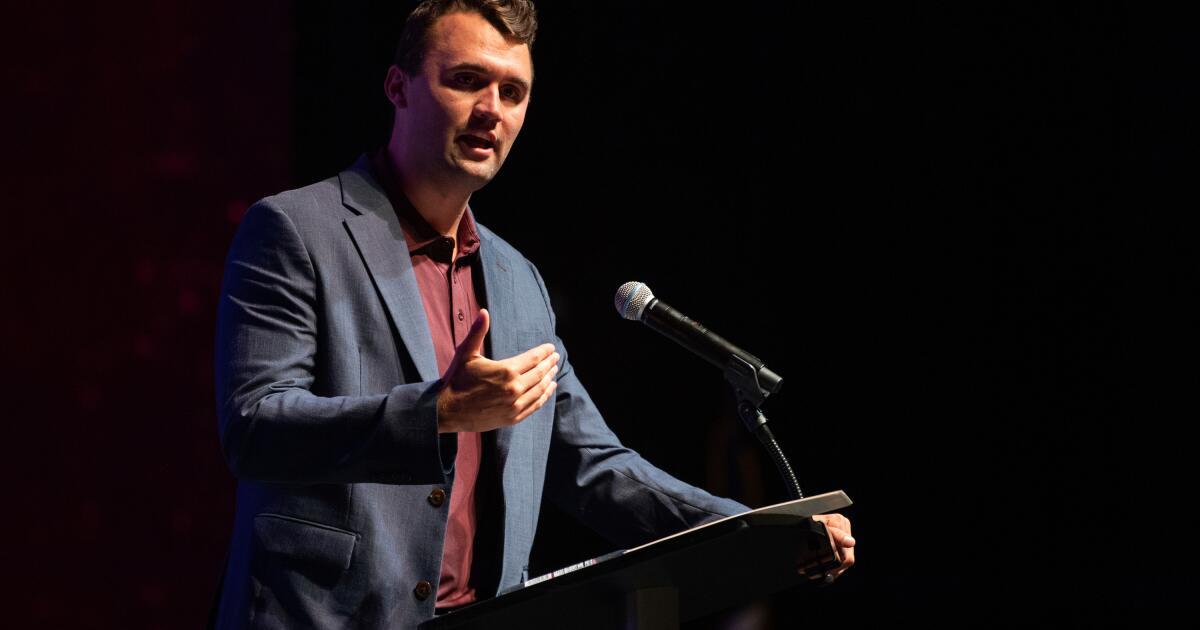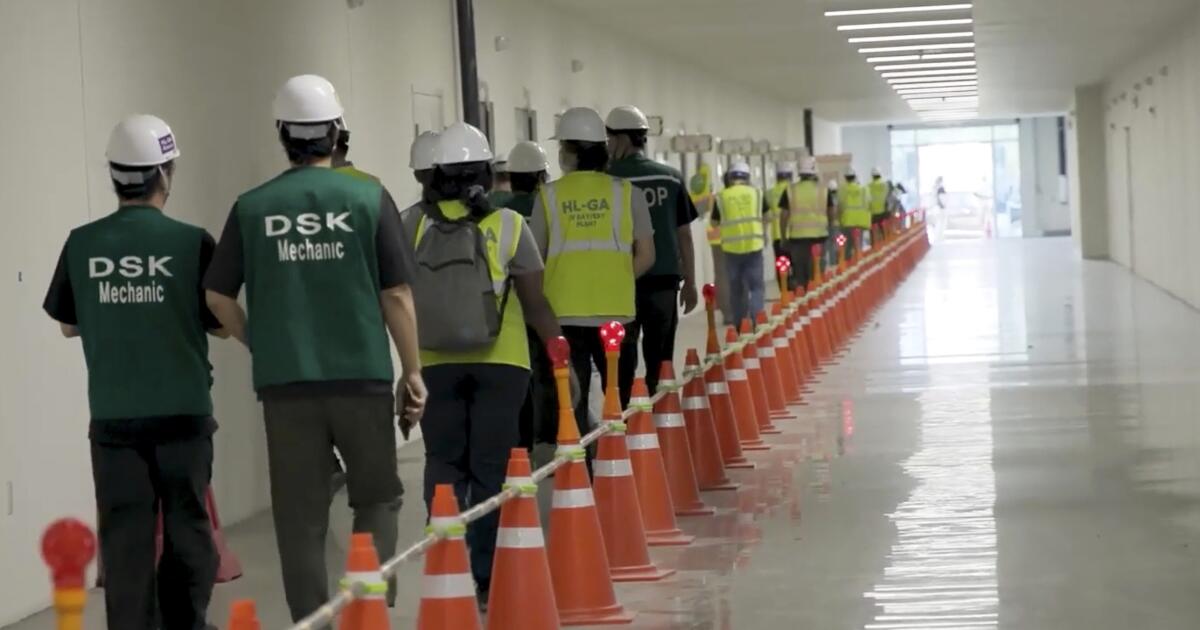The crew had just poured a concrete foundation on a vacant lot in Altadena when I pulled up the other day. Two workers were loading equipment onto trucks and a third was hosing the fresh cement that will sit under a new house.
I asked how things were going, and if there were any problems finding enough workers because of ongoing immigration raids.
“Oh, yeah,” said one worker, shaking his head. “Everybody’s worried.”
The other said that when fresh concrete is poured on a job this big, you need a crew of 10 or more, but that’s been hard to come by.
“We’re still working,” he said. “But as you can see, it’s just going very slowly.”
Eight months after thousands of homes were destroyed by wildfires, Altadena is still a ways off from any major rebuilding, and so is Pacific Palisades. But immigration raids have hammered the California economy, including the construction industry. And the U.S. Supreme Court’s ruling this week that green-lights racial profiling has raised new fears that “deportations will deplete the construction workforce,” as the UCLA Anderson Forecast warned us in March.
There was already a labor shortage in the construction industry, in which 25% to 40% of workers are immigrants, by various estimates. As deportations slow construction, and tariffs and trade wars make supplies scarcer and more expensive, the housing shortage becomes an even deeper crisis.
And it’s not just deportations that matter, but the threat of them, says Jerry Nickelsburg, senior economist at the Anderson Forecast. If undocumented people are afraid to show up to install drywall, Nickelsburg told me, it “means you finish homes much more slowly, and that means fewer people are employed.”
Now look, I’m no economist, but it seems to me that after President Trump promised the entire country we were headed for a “golden age” of American prosperity, it might not have been in his best interest to stifle the state with the largest economy in the nation.
Especially when many national economic indicators aren’t exactly rosy, when we have not seen the promised decrease in the price of groceries and consumer goods, and when the labor statistics were so embarrassing he fired the head of the Bureau of Labor Statistics and replaced her with another one, only to see more grim jobs numbers a month later.
I had just one economics class in college, but I don’t recall a section on the value of deporting construction workers, car washers, elder-care workers, housekeepers, nannies, gardeners and other people whose only crime — unlike the violent offenders we were allegedly going to round up — is a desire to show up for work.
Now here, let me give you my email address. It’s [email protected].
And why am I telling you that?
Because I know from experience that some of you are frothing, foaming and itching to reach out and tell me that illegal means illegal.
So go ahead and email me if you must, but here’s my response:
We’ve been living a lie for decades.
People come across the border because we want them to. We all but beg them to. And by we, I mean any number of industries — many of them led by conservatives and by Trump supporters — including agribusiness, and hospitality, and construction, and healthcare.
Why do you think so many employers avoid using the federal E-Verify system to weed out undocumented workers? Because they don’t want to admit that many of their employees are undocumented.
In Texas, Republican lawmakers can’t stop demonizing immigrants, and they can’t stop introducing bills by the dozens to mandate wider use of E-Verify. But the most recent one, like all the ones before it, just died.
Why?
Because the tough talk is a lie and there’s no longer any shame in hypocrisy. It’s a climate of corruption in which no one has the integrity to admit what’s clear — that the Texas economy is propped up in part by an undocumented workforce.
At least in California, six Republican lawmakers all but begged Trump in June to ease up on the raids, which were affecting business on farms and construction sites and in restaurants and hotels. Please do some honest work on immigration reform instead, they pleaded, so we can fill our labor needs in a more practical and humane way.
Makes sense, but politically, it doesn’t play as well as TV ads recruiting ICE commandos to storm the streets and arrest tamale vendors, even as the barbarians who ransacked the Capitol and beat up cops enjoy their time as presidentially pardoned patriots.
Small businesses, restaurants and mom and pops are being particularly hard hit, says Maria Salinas, chief executive of the Los Angeles Area Chamber of Commerce. Those who survived the pandemic were then kneecapped again by the raids.
With the Supreme Court ruling, Salinas told me, “I think there’s a lot of fear that this is going to come back harder than before.”
From a broader economic perspective, the mass deportations make no sense, especially when it’s clear that the vast majority of people targeted are not the violent criminals Trump keeps talking about.
Giovanni Peri, director of the UC Davis Global Migration Center, noted that we’re in the midst of a demographic transformation, much like that of Japan, which is dealing with the challenges of an aging population and restrictive immigration policies.
“We’ll lose almost a million working-age Americans every year in the next decade just because of aging,” Peri told me. “We will have a very large elderly population and that will demand a lot of services in … home healthcare [and other industries], but there will be fewer and fewer workers to do these types of jobs.”
Dowell Myers, a USC demographer, has been studying these trends for years.
“The numbers are simple and easy to read,” Myers said. Each year, the worker-to-retiree ratio decreases, and it will continue to do so. This means we’re headed for a critical shortage of working people who pay into Social Security and Medicare even as the number of retirees balloons.
If we truly wanted to stop immigration, Myers said, we should “send all ICE workers to the border. But if you take people who have been here 10 and 20 years and uproot them, there’s an extreme social cost and also an economic cost.”
At the Pasadena Home Depot, where day laborers still gather despite the risk of raids, three men held out hope for work. Two of them told me they have legal status. “But there’s very little work,” said Gavino Dominguez.
The third one, who said he’s undocumented, left to circle the parking lot and offer his services to contractors.
Umberto Andrade, a general contractor, was loading concrete and other supplies into his truck. He told me he lost one fearful employee for a week, and another for two weeks. They came back because they’re desperate and need to pay their bills.
“The housing shortage in California was already terrible before the fires, and now it’s 10 times worse,” said real estate agent Brock Harris, who represents a developer whose Altadena rebuilding project was temporarily slowed after a visit from ICE agents in June.
With building permits beginning to flow, Harris said, “for these guys to slow down or shut down job sites is more than infuriating. You’re going to see fewer people willing to start a project.”
Most people on a job site have legal status, Harris said, “but if shovels never hit the ground, the costs are being borne by everybody, and it’s slowing the rebuilding of L.A.”
Lots of bumps on the road to the golden age of prosperity.
[email protected]

























